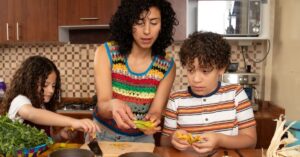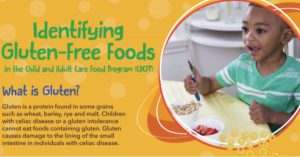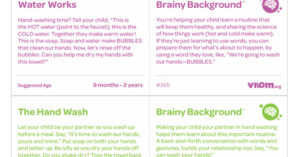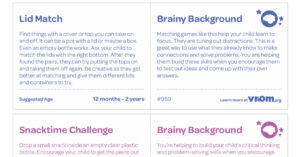Partner Resources
Cooking Fun for Families
Preparing their own food can help children and teens learn about nutrition, practice meal planning, get to know other cultures, and build basic math skills. It also encourages creativity and independence. Our partners at Alliance for a Healthier Generation have resources to help families cook safely and confidently with these kid-friendly cooking tips!
Read MoreIdentifying Gluten-Free Foods
Learn how to identify gluten-free foods and get a yummy gluten-free snack recipe.
Read MoreSupporting Families Through Emergencies
Our partners at Sesame Street in Communities have developed resources to support community providers and caregivers who serve families and help children face challenges, big and small. When a natural disaster strikes, caregivers and providers look for the right thing to say or do.
Read MoreCooking with Herbs and Spices
Incorporating herbs and spices into recipes enhances flavor, aroma, and color while reducing the need for excess salt, sugar, and fat. Our partners at the Institute of Child Nutrition define herbs and spices, reviews the health benefits of using fresh or dried herbs and spices, and provides ideas for incorporating them into recipes.
Read MoreSpark Curiosity
Curiosity is the key to learning. When you encourage children to ask lots of questions, you’re helping them build their natural curiosity and think like scientists. Our partners at Sesame Street in Communities have great resources to help you encourage curiosity with those in your care.
Read MoreHealthy Habits: Brain Builders
Parents and caregivers do a lot to help child stay healthy! At mealtime, they choose foods to help them grow strong. At bedtime, they teach them how baths keep us clean. And don’t forget every time they brush their teeth, wash their hands, or move their body.
Did you know these healthy habits help their brain grow flexible and strong, too? The skills they learn from the time you spend together don’t wash down the drain. They last a lifetime!
Unplug and Play
Summer is nearly here, and the school year is winding down. The temptation to swap class time for screen time is strong, but it’s not what children need most. That’s why our partners at Read Aloud 15 Minutes have created summer materials designed to spark creativity and encourage physical activity without relying on screens.
Read MoreMajor Allergens: The Big Nine
May is Food Allergen Awareness Month. More than 170 foods have been reported to cause allergic reactions, according to Food Allergy Research & Education (FARE), but the vast majority are caused by the “Big Nine”: milk, eggs, nuts, fish, crustaceans, shellfish, wheat, soy and sesame. Our partners at SNA share information on the nine major food allergens.
Read MoreLegumes: Beans, Peas, and Lentils
Did you know a simple bag of beans could be the key to powering up your CACFP menus? Legumes like beans, peas, and lentils are versatile, affordable superfoods. Regularly consuming legumes may help reduce the risk of obesity, diabetes, heart disease, and certain cancers. Including them as part of your menu can positively impact the health of the children in your care.
Read MoreScience in Everyday Moments
Young children are curious about the world around them. Through the everyday moments you already share, you’re helping your child learn like a scientist. Our partners at Vroom have some brain builders to help you turn nature into a classroom!
Read More









